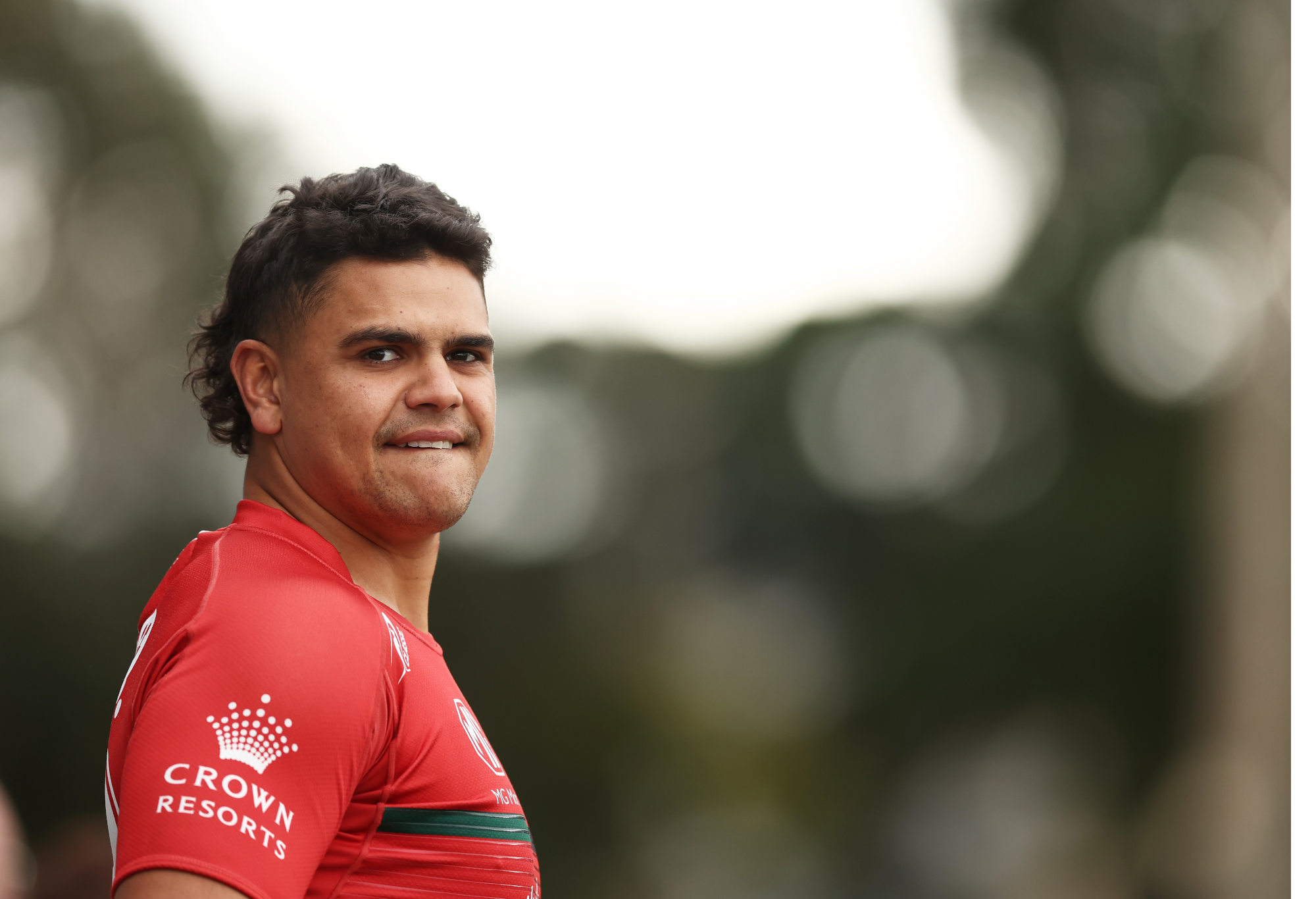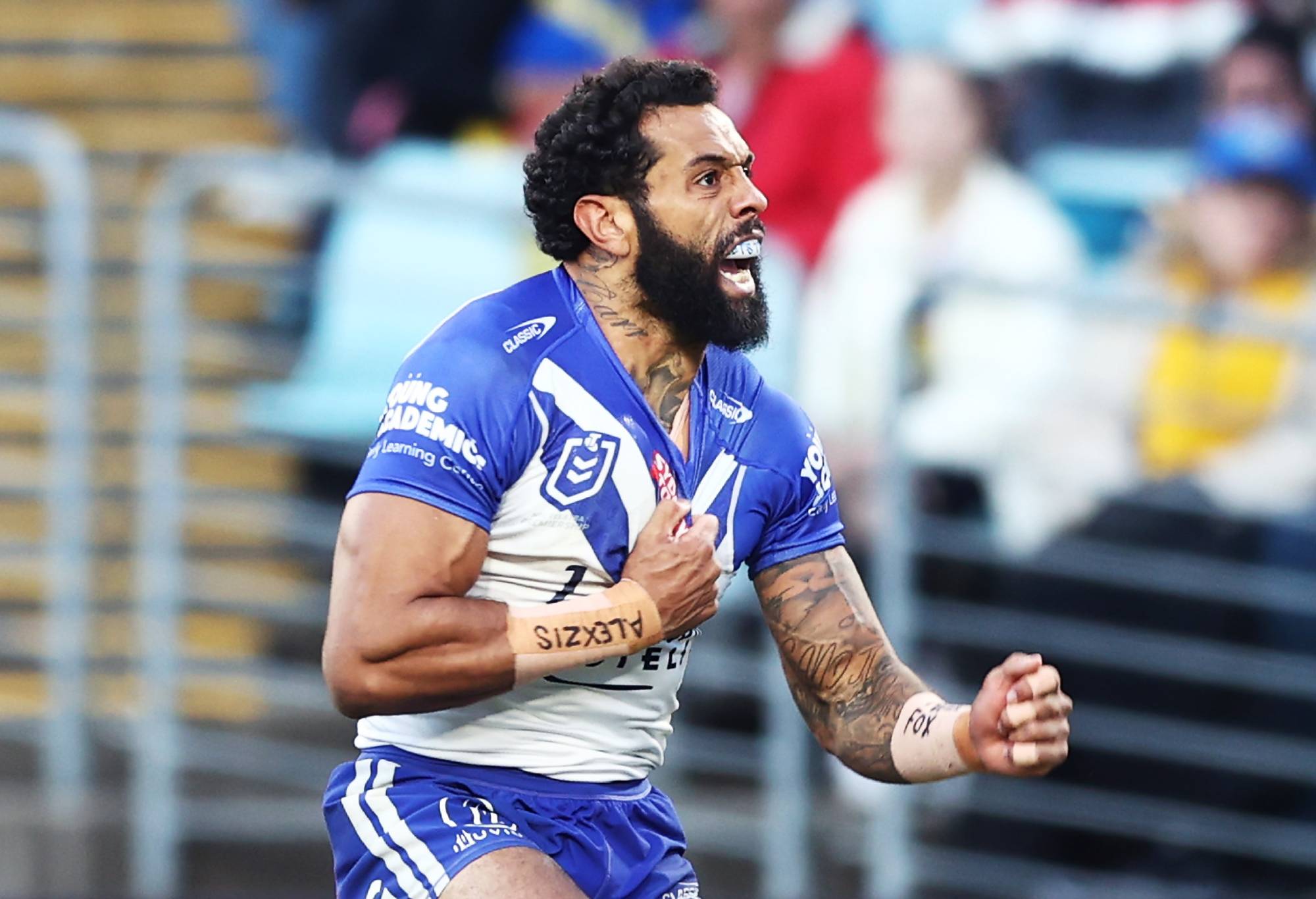NRL Round 7 judiciary: Roosters star duo charged, Eels forward in strife again
James Tedesco will be free for the next game of the Sydney Roosters' inconsistent NRL campaign after escaping suspension for tripping Ryan Papenhuyzen. The…
If you missed last weekend’s Koori Knockout, you missed a treat. The annual festival of Indigenous footy was all that is best about rugby league: amazing tries and big hits, but also cultural celebration and togetherness.
If you missed it, you would have been in the same boat as 16 NRL clubs, after it was revealed that not a single elite scout attended the tournament despite hundreds of young players from untapped country areas showing their skills to a national television audience across men’s, women’s, girls and boys categories.
It was this lack of interest from elite talent identification pathways that caused Kangaroos star Latrell Mitchell – who played in the Knockout for Walgett Aboriginal Connection – to fire up earlier in the week.
“A big part of the knockout is going and watching, and seeing what talent we have,” said the Souths fullback. “It’s pretty disappointing to see no NRL scout went down there and had a look. They should have been there knocking on the gate to get in.”
Dean Widders, who coached Parramatta Eels in the NRLW Grand Final on Sunday and commentated for NITV on the Monday finals day, knows more than most about picking players out of bush footy.
He experienced it himself, coming from Armidale to Sydney as an 18-year-old, and after retirement, Widders worked in the Indigenous pathways system at the NRL and now coaches NRLW.
“I think we’ve gone away from identifying raw talent in the game,” he said. “With the Indigenous kids that come through, they come from communities and towns where the game is struggling.

Latrell Mitchell(Photo by Matt King/Getty Images)
“The game’s not as strong as it used to be in the bush and the competition isn’t as strong as it used to be. The opportunities to develop players through comps and training is always a struggle with these kids.”
Widders identified the lack of access to elite training, as well as the physical differences that young Indigenous players often face when they enter the traditional pathways.
“They come through and have that raw ability, but if you put them in the pathways that we have for the NRL, these kids will struggle because they haven’t got the size that a lot of the Pacific kids have, and they haven’t had the training that city kids get at a younger age, so they’re so far behind and they stay behind,” he said.
“For them to catch up, you need clubs to be really patient and to invest in them long term, to make sure they put the support culturally and spiritually around them. No club has got that money or time these days, they’re looking for results right now.
“I think they have to do alternate pathways programmes that are suited for kids that are smaller and from areas where the game isn’t as developed, so they still get opportunities to be part of elite training and competitions.
“At the moment, the only pathway into the game is Harold Matthews (u-16), SG Ball (u-18) and Jersey Flegg (u-20), it’s one pathway into the NRL system. We need to create a different level where kids can play, still get the development and expert coaching, but develop at a slower rate.
“That doesn’t exist currently and we’ve got to do it because otherwise we’ll lose a lot of these kids from the bush.
“They can’t maintain the pathway that’s there now because of the size difference and the training difference. They lose confidence, they lose interest and they change their style of play to try and match it in.
“I watch junior footy now and they just replicate how the NRL run their footy teams. Some of the kids aren’t ready for that style yet.”
The talent is certainly there. Two of the biggest Indigenous stars in the NRL, Bulldogs winger Josh Addo-Carr and Souths five eighth Cody Walker, developed outside of the traditional pathway systems.

(Photo by Matt King/Getty Images)
“It’s getting harder now,” he said. “I don’t know whether a Josh Addo-Carr or Cody Walker would be able to come through the current pathway.
“Josh didn’t fit into the pathway of going through Matts and Ball. He fell out of the game and had to go play local footy and build himself back around that way. He was a slight kid, he was small, and he had to find a different pathway. There’s a lot of them out there.
“Look at the improvement that he’s shown since he came to an NRL system. Cody Walker is the same. They really improve when they get into the elite level and elite training, but we have to provide them with the ability to participate in that. Cody and Josh are two prime examples that I look at of guys that need that alternate pathway.”
Widders compared them to the two halves for Newcastle All Blacks, who won the Koori Knockout, defeating a Walgett team that boasted Mitchell and former Dally M Medallist Ben Barba in their ranks.
“Scott Briggs and Adrian Davis, the two halves in that game, they’re two prime examples of kids with massive talent who didn’t have the support and environment to help them adapt to the pressures of playing in the NRL,” he said.
“I wouldn’t have made it. Back then, you could come from the bush at a later age. I came down at 18, but these days I wouldn’t have been able to adapt to the strength and the size of the kids I was playing against in the same position as me, and I would have been lost to the game.”